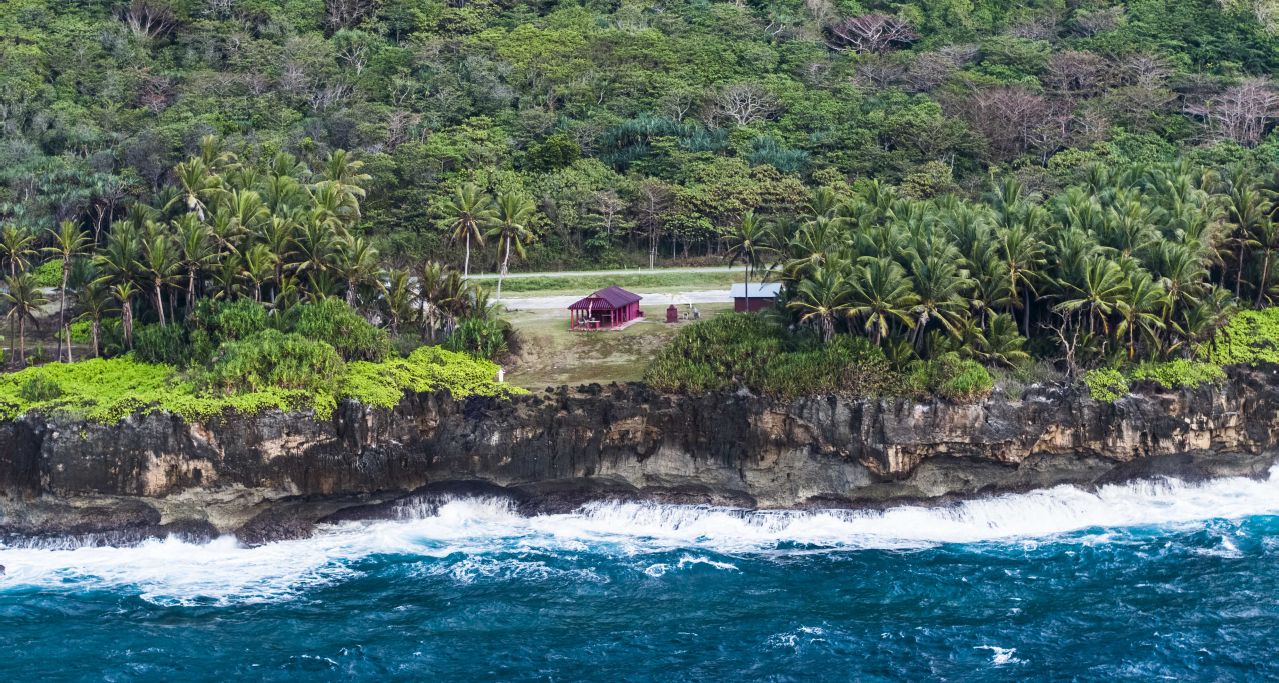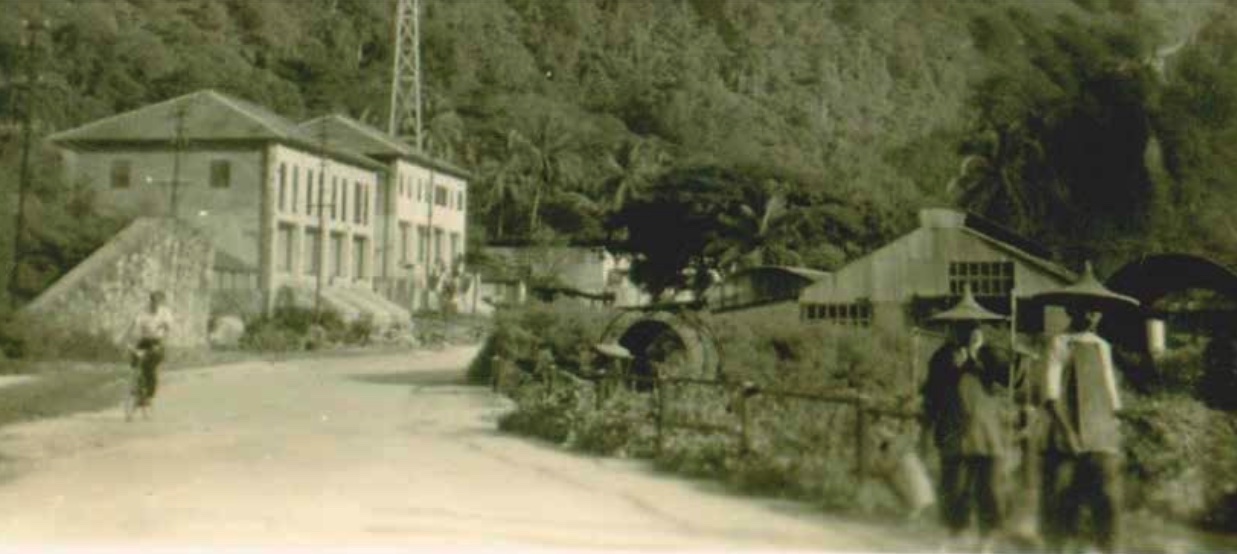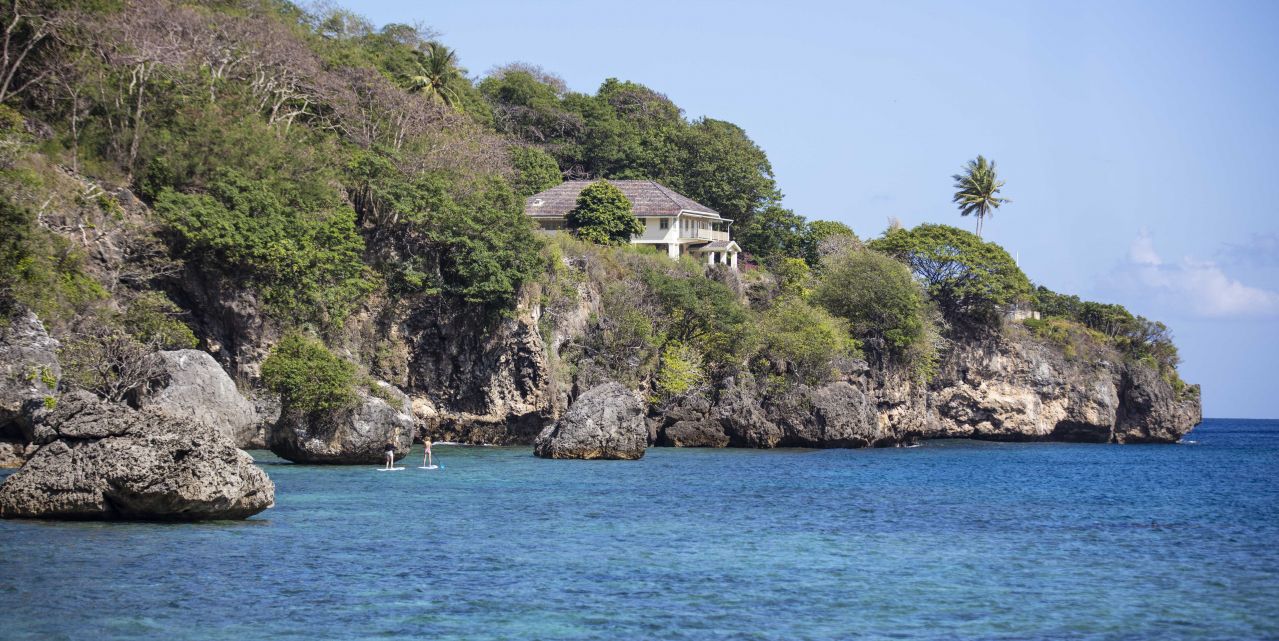When Chris Carr recounts a story, everyone listens. There's something about the way he begins, his tone of voice, and the location he chooses. "I tell my stories throughout the tour. If I'm near a location where one of the events took place, I'll start there. Other times I'll talk about the island's fascinating history while we're having our afternoon tea, which we set up in the middle of the bush or under a gazebo out of the spray from the blowholes."

Ma Chor Nui Nui Temple. Image: Indian Ocean Experiences.
To be fair, Chris' stories would captivate listeners even if he recounted them in a lecture room, but there's an extra layer of depth when you're standing close to something he's talking about. "I've been living on the island for almost 15 years and guiding for Indian Ocean Experiences for five years," Chris says. "The history of the island is incredibly fascinating."

A historical image of Christmas Island. Image: Indian Ocean Experiences.
Although Christmas Island was discovered by British merchant ship captain, William Mynors, on Christmas Day 1643 (hence the name of the island), it wasn't explored until the mid 1800s. The discovery of phosphate in 1887 led to the island's annexation by Great Britain the following year, and rivals George Clunies-Ross and John Murray soon employed (in harsh conditions) a predominantly Chinese, Malay and Sikh workforce to exploit this natural resource. There are also remnants of WWII history as well as fragments of the Japanese invasion on the island.
"A lot of the island's history has been lost for many years, but recently a researcher named Fran Yeoh has uncovered some enthralling stories about the everyday men and women who lived and worked on the island. I often share their captivating tales as we explore."

Ma Chor Nui Nui Temple. Image: Indian Ocean Experiences.
Chris has a loose itinerary for when guests visit, but the island and its natural inhabitants are paramount. "The whole island is dominated by the crabs," laughs Chris. "They dictate where we can drive and what we can see and, during the migration season, there's a lot more walking involved. We can't drive in certain areas as the roads are overflowing with crabs. Sometimes we even arm our guests with rakes to clear the crabs off the road so we can drive a little further. And, usually, guests are ready for another story soon after."
Related Experience - Christmas Island Ultimate Wildlife
Christmas Island's geographic isolation and minimal human disturbance has produced an incredible level of biodiversity and endemism, leading to the label of the 'Galapagos of the Indian Ocean'.

